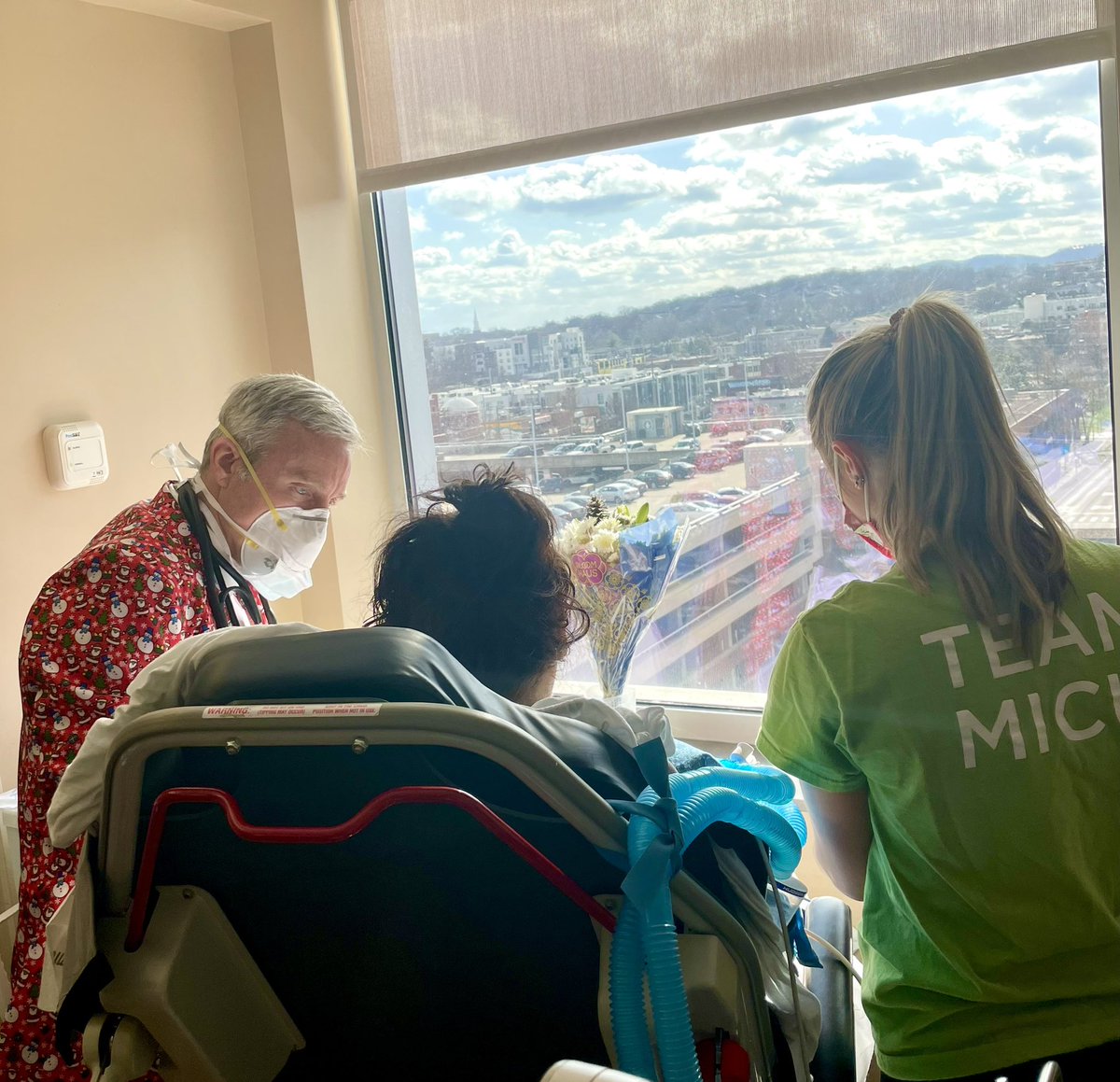
1/🧵 Sleep for Sick Patients & #LongCOVID
If sleep is so important, why do we wake you up (hourly) in hospital?
Do #LongCOVID pts need MORE rest than they think?
We’re studying this to see if “forcing” hospital quiet times helps people survive & get less #delirium.
Read on…
If sleep is so important, why do we wake you up (hourly) in hospital?
Do #LongCOVID pts need MORE rest than they think?
We’re studying this to see if “forcing” hospital quiet times helps people survive & get less #delirium.
Read on…
https://twitter.com/weselymd/status/1390124955996667907
2/ It makes sense to me that it’s unhealthy to keep waking up people who are trying to get rest & heal.
If the body needs 7 hours #sleep a night when NOT sick (see 🧵 in tweet above), is it anti-medicine to prevent us from even more sleep when so much repair is needed?
If the body needs 7 hours #sleep a night when NOT sick (see 🧵 in tweet above), is it anti-medicine to prevent us from even more sleep when so much repair is needed?

3/ @fi_lowenstein & @itsbodypolitic wrote a wonderful piece about how she “rested herself” to health when suffering #LongCOVID.
I tell my COVID survivors @CIBScenter, “However much sleep/rest you think you need, double it.”
bit.ly/34JSyEd
I tell my COVID survivors @CIBScenter, “However much sleep/rest you think you need, double it.”
bit.ly/34JSyEd
4/When our daughter had head injury, I thought about this a lot. It’s in #EveryDeepDrawnBreath on pp. 98/104:
“We stayed in the neuro-ICU for 3 nights, Kim & I taking turns
sleeping fitfully in our daughter’s narrow hospital bed. Those were long expanses of reflection for me…”
“We stayed in the neuro-ICU for 3 nights, Kim & I taking turns
sleeping fitfully in our daughter’s narrow hospital bed. Those were long expanses of reflection for me…”
https://twitter.com/WesElyMD/status/1409959918334005248
5/…as I became attuned to the daily routines of the hospital from this new perspective. I saw the way my daughter huddled into herself in her bed, as if by being invisible she might pretend that she was somewhere else instead.
6/ She seemed far from us in time and space, rarely opening her eyes or speaking, other than for temperature checks and the constant hourly neurological examinations. She seemed to exist in an in-between space. During the night, I told her stories…
7/ about a boy and girl called Ethan and Ally, my voice spooling across the space between us. Later, when I was on rounds discussing the details of my patients’ care, I started to see potential harm in everything we did…
8/ from the hourly neuro checks we imposed on our patients w brain injury, and that my own daughter had undergone, to the endless testing & blood draws & dispensing medications throughout the day and night.
9/final thought on 💤 as medicine:
Our objective as physicians is to protect our patients, to keep YOU from harm, but what if we are impairing your healing by interrupting the injured body’s much-needed sleep?
At what point do our actions tip the scale from benefit to harm?
Our objective as physicians is to protect our patients, to keep YOU from harm, but what if we are impairing your healing by interrupting the injured body’s much-needed sleep?
At what point do our actions tip the scale from benefit to harm?
• • •
Missing some Tweet in this thread? You can try to
force a refresh









